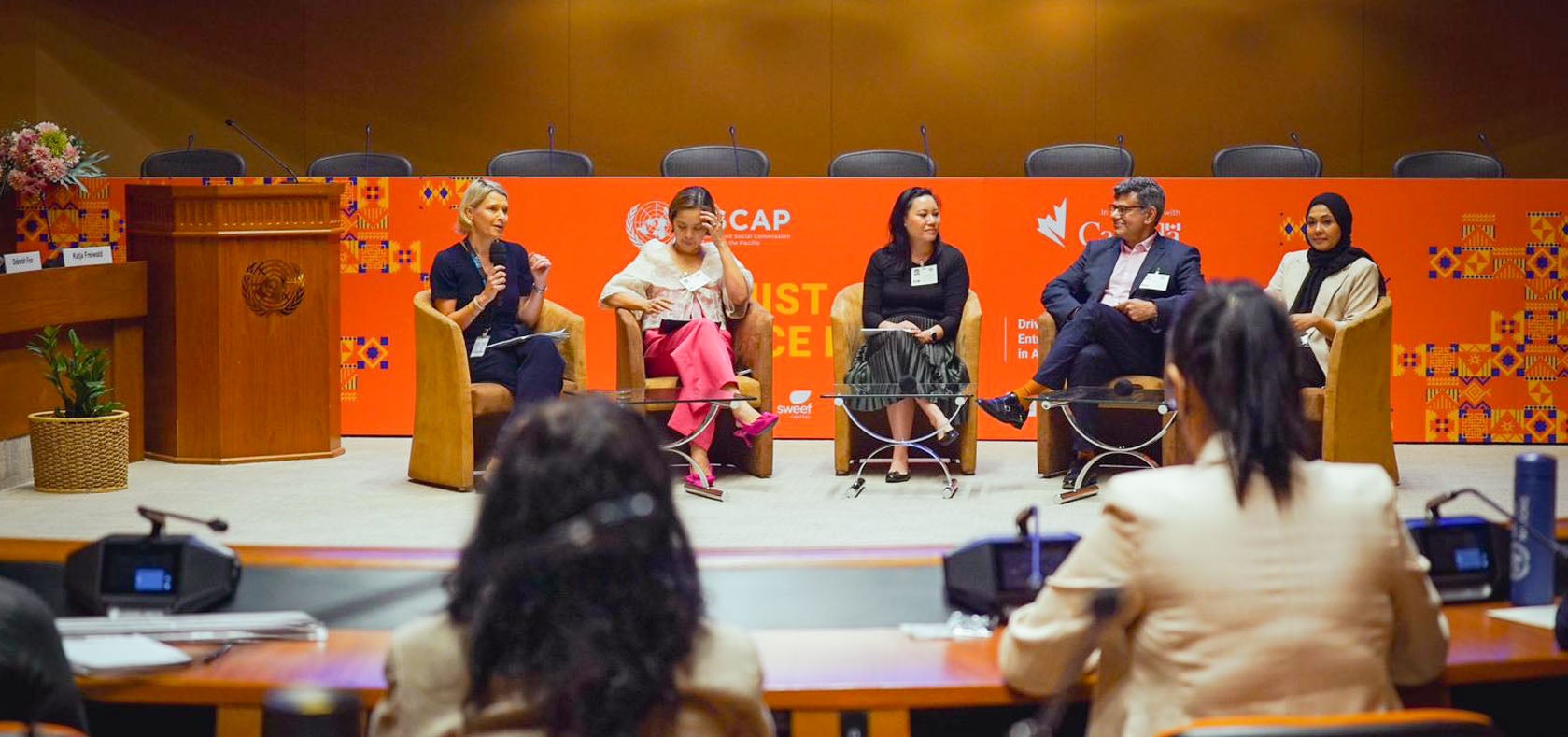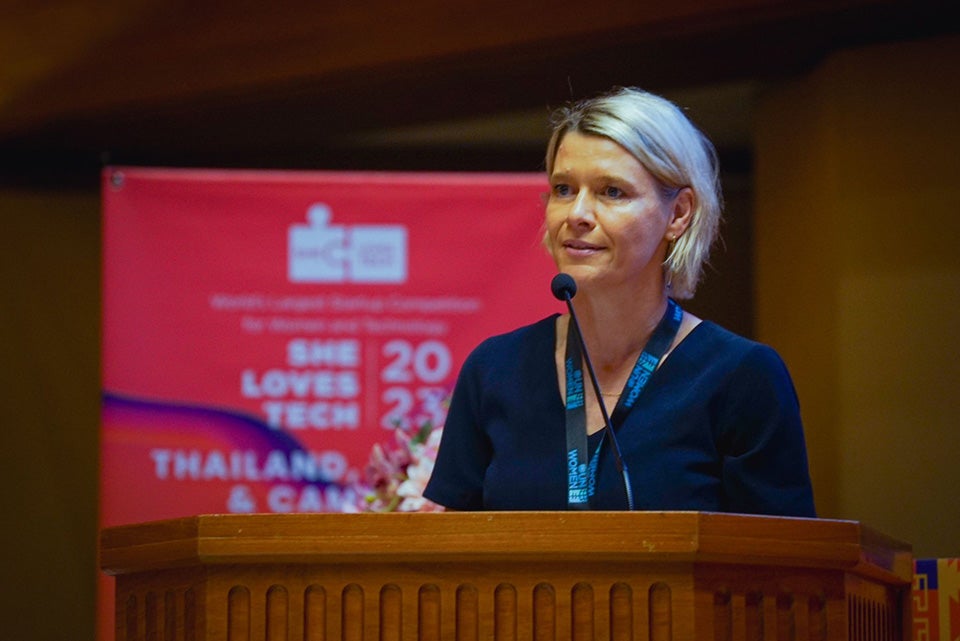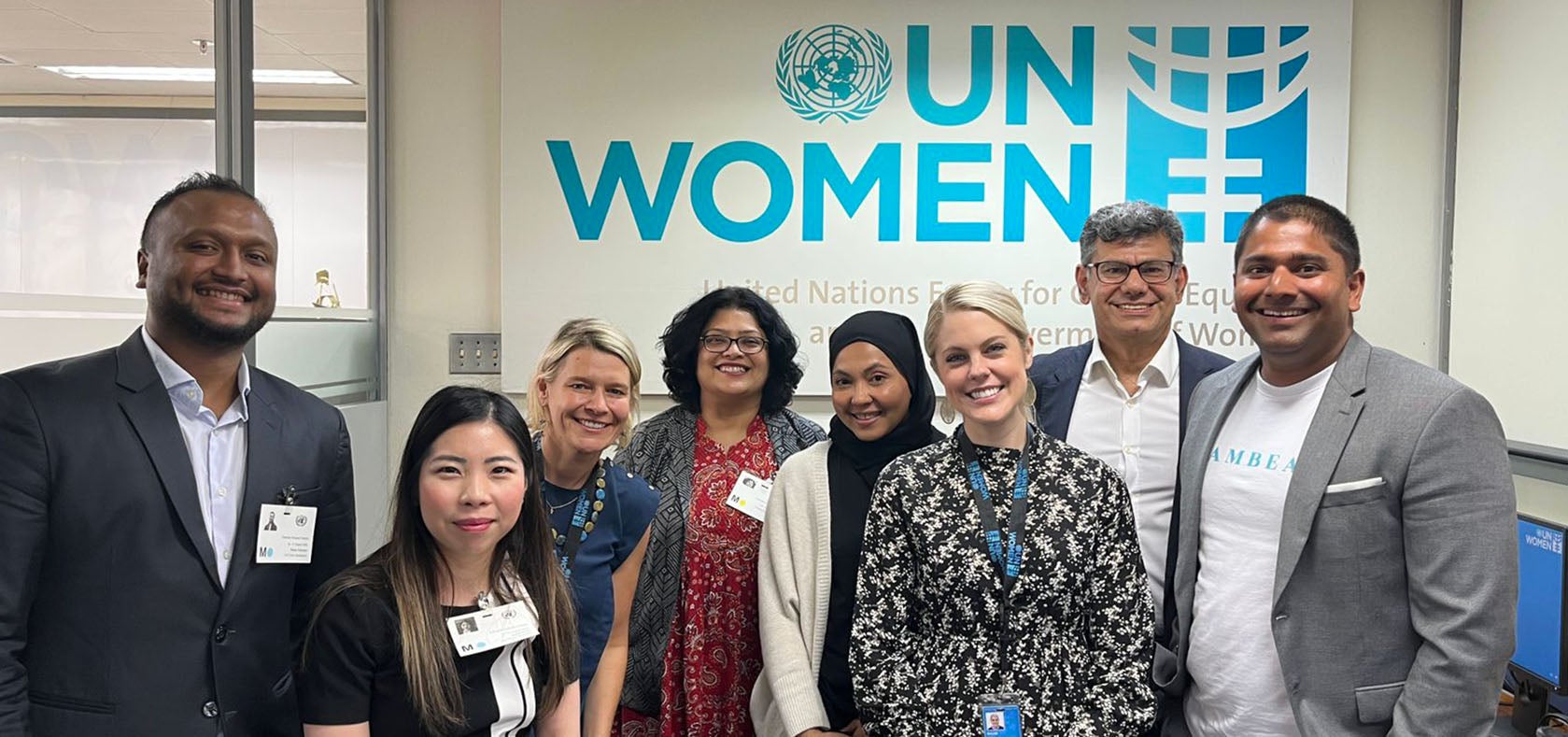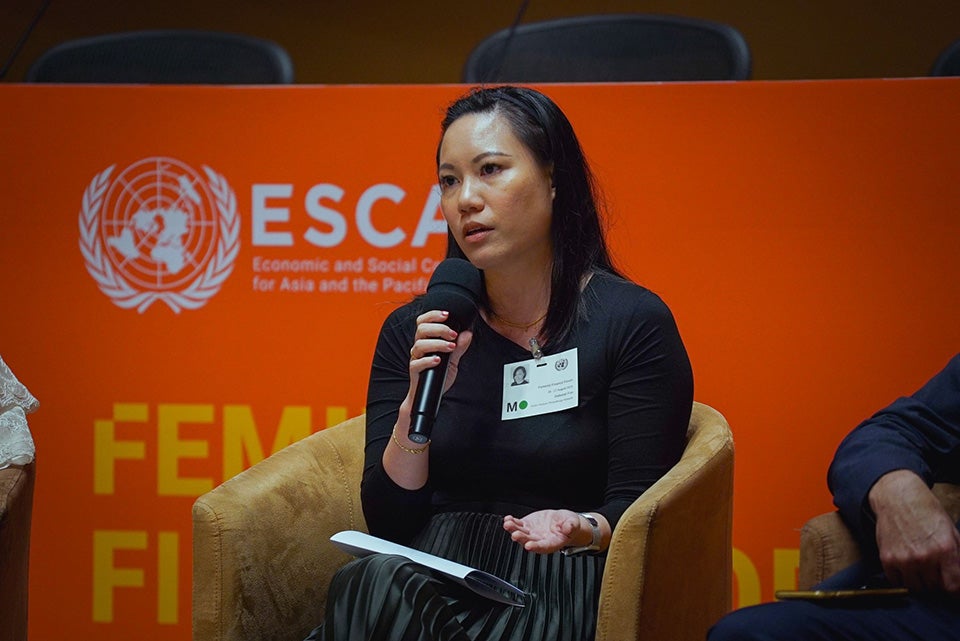Feminist Finance Forum discusses the care economy and women's economic empowerment in Asia-Pacific
Date:
Author: Zoya Khanday
Bangkok, Thailand — UN Women Regional Office for Asia and the Pacific facilitated a panel discussion on "The Care Landscape in Asia and the Pacific: Insights for Governments, Investors and other Financial Actors to Invest in Care” at the recently concluded Feminist Finance Forum in Bangkok hosted by the United Nations Economic and Social Commission for Asia and the Pacific (ESCAP).

The discussion highlighted women’s unpaid care work – an often underestimated aspect of the economy. If the economic value of unpaid work was factored into the calculation of gross domestic product (GDP), the economy of the Asia-Pacific region would see an increase of a staggering US$ 3.8 trillion. With growing interest in and recognition of the need to transform the care economy, investors are considering the care sector.
The Forum attracted a diverse range of stakeholders, including women entrepreneurs, investors, financial service providers, policymakers, thought leaders and representatives of civil society and academia.

Katja Freiwald, Lead, Women’s Economic Empowerment and Migration, UN Women Regional Office for Asia and the Pacific said, "It is evident that the care economy holds the capacity to generate millions of job opportunities, enhance women’s labour force participation, and propel the GDP growth of economies in Asia and the Pacific. The case is clear; what remains important is the conversion of this understanding into tangible actions to deliver care services for all."
Against this backdrop, the Feminist Finance Forum provided a space for both alumni and the current cohort of the Asia-Pacific Care Accelerator to come together. Engaging with policymakers, investors, thought leaders and grassroots organizations, these entrepreneurs not only showcased their innovative solutions but also broadened their horizons, enhanced their strategies, and expanded their networks.

To transform the care economy, UN Women aims to advance women’s economic empowerment, including supporting care entrepreneurs through the Asia-Pacific Care Accelerator. This initiative identifies and promotes innovative women-led and/or women-impacting enterprises provide accessible and affordable care and to turn the unequal distribution of unpaid care work into opportunities that benefit women, families and communities.

Ahsan Jamil, Co-founder and CEO, Ubuntu Care Limited [Care Accelerator 2.0 cohort]
“An essential part of unlocking the enormous potential of half of the global population, is having childcare so women can participate in the workforce. Through the provision of consistently high-quality care and support, Ubuntu Care is dedicated to elevating the significance of childhood and fostering informed parenting that understands the developmental needs of children.”
Recognizing the potential of innovative care enterprise solutions, Asia Venture Philanthropy Network (AVPN), a top social investor network in the region, UN Women and Kiddocare Malaysia,, an on-demand babysitting platform providing solutions in the care economy, collaborated earlier in 2023 to convene the Asia-Pacific Care Economy Forum in Kuala Lumpur. The event explored novel ways to drive inclusive care delivery ecosystems in the region, including by increasing investments.

Nadira Yusoff, Founder and CEO, Kiddocare [Care Accelerator 1.0 cohort], co-organizer at the Asia-Pacific Care Economy Forum
“After the Asia-Pacific Care Economy Forum, we in Malaysia have seen an increase in our government’s interest in the care economy, such as recognizing the need to support the livelihood of childcare workers. As a significant step, the government has introduced salary subsidies designed to directly benefit these care workers. This approach enables pricing to remain affordable for customers, while providing better renumeration for care workers.”
At the Feminist Finance Forum in Bangkok, the findings and experiences from the Asia-Pacific Care Economy Forum were translated into actionable strategies. The panelists and participants heighten visibility for innovative care enterprise solutions, emphasized the role these solutions play in enhancing care service delivery and work opportunities, facilitated partnerships among different ecosystem players to bridge the care delivery gap and galvanized conversations, actions and investments in the care economy across the Asia-Pacific region.

Deborah Foo, Platforms Manager, Care Economy Lead, AVPN, co-organizer at the Asia-Pacific Care Economy Forum
“There is an existing knowledge gap in the care economy – a lack of a unified framework to assess its success. Facilitating partnerships is key, the government has the reach and resources, private investors have the capital, and care entrepreneurs have the knowledge and the expertise, but data has the power to bridge this gap and shift the perspective on the care economy from a mere cost to a promising economic opportunity.”

Kristine Balmes, Deputy Executive Director for Operations, Philippine Commission on Women
“Through our national household surveys, we realized the need for an accessible day care system to be more accessible to care workers. The national Government agreed that we must account for questions on care activities to better inform our work on the care economy, because unpaid care work cannot be addressed in isolation.”
The participants in the Feminist Finance Forum reinforced the need to value, define, demystify, finance, collaborate and mobilize for care, consistent with the report on Highlights and Recommendations for Practitioners, published as an outcome of the Asia-Pacific Care Economy Forum.
In Asia and the Pacific, UN Women’s efforts are aligned with care entrepreneurs as they empower women by providing them with increased opportunities, resources and support in the care economy.